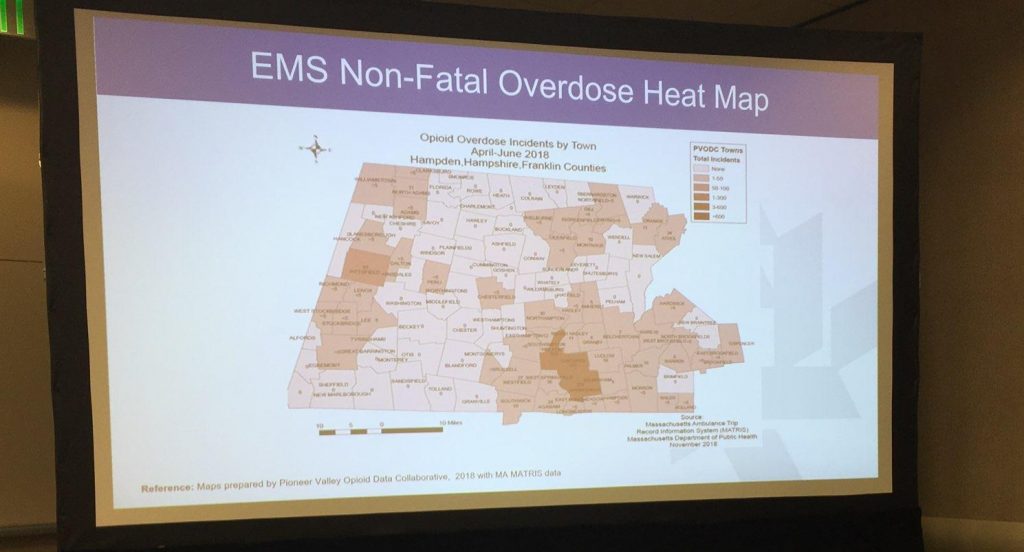Bumped to the early hour of 7 a.m. because of scheduling rearrangements forced by President Trump’s mid-day keynote at the RX Drug & Heroin Summit, Hampshire HOPE’s Michele Farry’s presentation nevertheless drew a crowd of 75 people eager to hear about the coalition’s soon to be launched data system.
Likely, they were all data nerds already, but Farry and co-presenter Jesse Yedinak of Brown University in Rhode Island still took the opportunity to spend the next 90 minutes to show how data can be used to save lives and improve outcomes amid a nationwide opioid crisis.
“No doubt data can be scary but if you allow the story that the data tells to be your focus, it comes alive. The real challenge lies more in developing the questions you need answers for with your data and staying open-minded about how to guide the data to get answers,” said Farry. “Our data can enrich the work we all do and we have a responsibility to allow that data to drive the work.”
Meanwhile all over the Hyatt hotel serving as the venue for the largest opioid and heroin conference in the country, Secret Service officers and armed police fanned out in advance of the expected arrival of President and Melania Trump.
Farry was selected to present about a new case management and data integration system made possible by a $100,000 community compact IT grant from the state last June. The system is set to go live in June.
Farry said the program will help members of the police-related Drug Addiction Response Teams (DART) now at work all over Hampshire County better share information and access data so they can respond to needs in real time.
The system allows DART team members to communicate with each other on a secure portal online in order to meet needs of opioid users and their families.
“The development of the case management system side was being driven by the process and protocols and need for efficiency for the DART team,” Farry said. “Having information is vital for Hampshire HOPE when deciding what next steps the coalition will take for addressing this issue in our community.”
Yedinak talked about how efforts to respond to the state wide overdose death crisis in Rhode Island were helped when various sectors collaborated to create open data portals that, for example, included interactive maps showing areas suffering high death rates so naloxone could be distributed more widely there.
“Data can be such a powerful tool to know that you are on the right track and to know where and when to intervene,” she said.
Both Farry and Yedinak encouraged the audience to go back to their communities, see what data is already public, and start small in efforts to use that data to drive the work they do.



